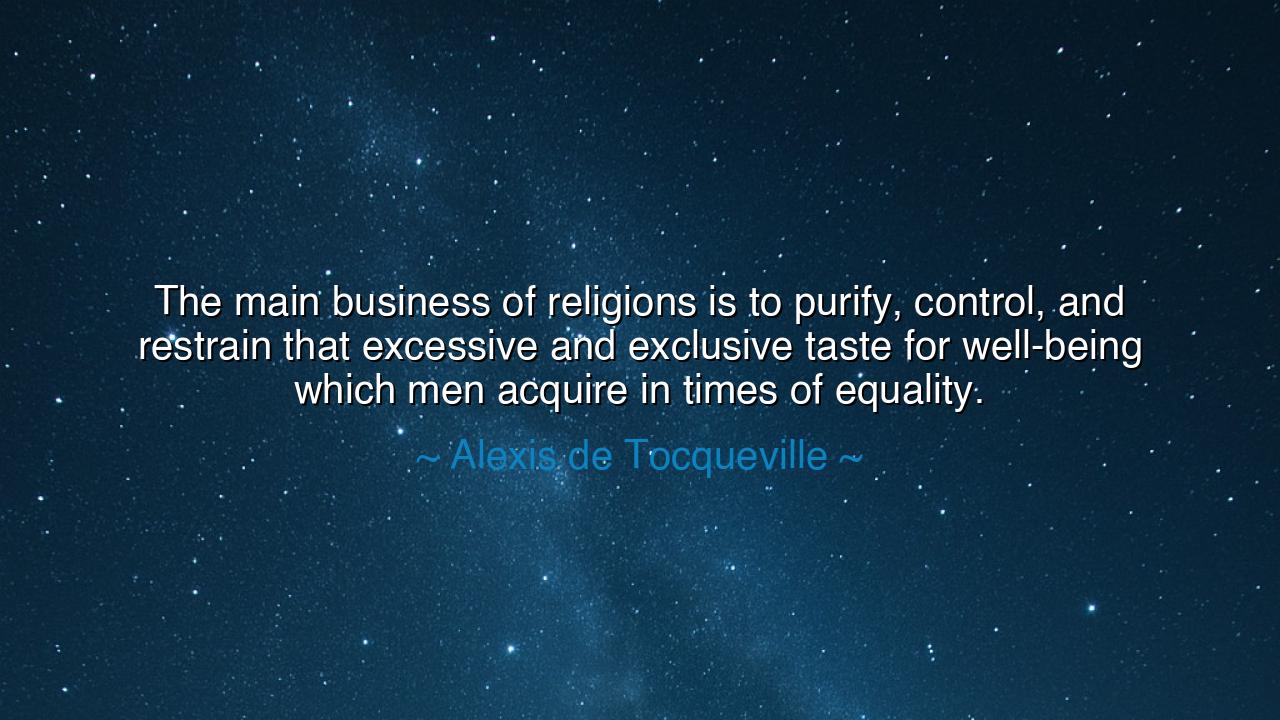
The main business of religions is to purify, control, and
The main business of religions is to purify, control, and restrain that excessive and exclusive taste for well-being which men acquire in times of equality.






Yes — that quote is correctly attributed to Alexis de Tocqueville, the French political thinker and historian best known for his work Democracy in America (1835-1840), in which he analyzed the strengths and weaknesses of American democracy and its effects on society.
“The main business of religions is to purify, control, and restrain that excessive and exclusive taste for well-being which men acquire in times of equality.”
— Alexis de Tocqueville
Context and Background
In Democracy in America, de Tocqueville explores the social and political consequences of democracy, particularly how it promotes equality and shapes human desires and behaviors. He observed that democracy often fosters an excessive focus on individual well-being and material comfort, which can lead to self-interest and a decline in moral or spiritual values.
In this quote, de Tocqueville suggests that religion plays a critical role in counteracting the potential negative effects of equality by restraining the unchecked pursuit of personal happiness. By offering moral guidance and a sense of purpose beyond material well-being, religion helps to moderate human desires, thus maintaining social harmony and spiritual integrity.
Interpretation
-
“Purify, control, and restrain” — religion's role is to provide a framework that keeps self-interest and materialism in check, encouraging people to act with greater moral responsibility and spiritual awareness.
-
“Excessive and exclusive taste for well-being” — reflects a criticism of the individualistic tendencies that democracy can amplify, leading people to focus almost entirely on their own personal success and comfort.
-
“Men acquire in times of equality” — de Tocqueville notes that equality can unintentionally promote a desire for material well-being, which might undermine community bonds and social values.
Summary
Alexis de Tocqueville’s quote reflects his concern that, in a democratic society where everyone has the opportunity to succeed and accumulate wealth, people may become overly focused on personal well-being at the expense of collective moral responsibility. He argues that religion serves a vital function in restraining this tendency, helping individuals find meaning and purpose beyond material pursuits. This insight underscores his broader reflections on how equality, individualism, and religion interact in democratic societies.






AAdministratorAdministrator
Welcome, honored guests. Please leave a comment, we will respond soon